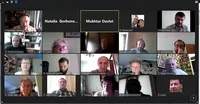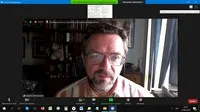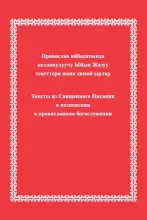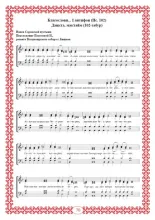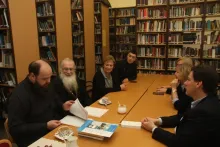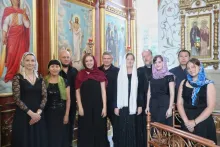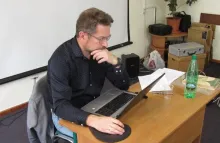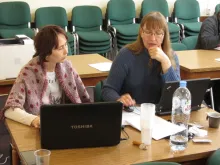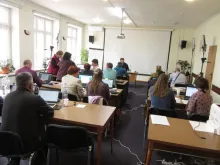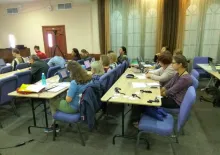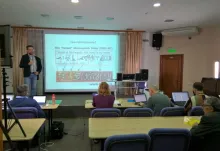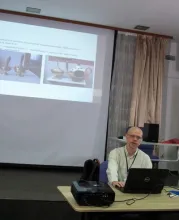newsletter-020322

articles-22062020
IBT held a translation workshop on two of the Minor Prophets via Zoom on June 11-18. This was the first time in IBT’s history that one of our workshops has been conducted as a webinar.
The online format of this workshop was necessitated by the coronavirus pandemic and the related quarantine measures. Nevertheless, its advantages quickly became apparent. Many IBT translators are university instructors, and for them, June is traditionally a very busy time, full of summer courses and entrance exams. Translation team members who would not have been able to come to Moscow for a face-to-face seminar were still able to find time in their busy academic schedules for full participation in the virtual workshop.
news-04062020
IBT has published a unique collection of Orthodox liturgical texts in the Kyrgyz language, including musical notation for performance. This is IBT’s first-ever publication of this kind. Most of the 1,000 copies printed will go to the Kyrgyz diocese of the Russian Orthodox Church in Bishkek, since this edition was produced in response to a request of Bishop Daniel of the Kyrgyz diocese. Translation of liturgical texts, which are designed for communal singing to melodies well known in the Orthodox world, demanded that the translation team acquire a completely new set of skills. Special attention had to be paid not only to accuracy in the translation, but also to sound collocations and rhythmic patterns...
news-181019
On October 9-17, the Institute for Bible Translation held a workshop on Minor Prophets Translation Issues. It was attended by translation teams from eleven language groups (Adyghe, Avar, Balkar, Erzya, Kabardian, Kumyk, Kyrgyz, Mari, Tabasaran, Tajik, and Yakut). The discussion was headed by IBT consultant Andrei Desnitsky and by Yevgeniy Shved, the exegetical advisor in several of IBT's translation projects. The workshop focused on the text and translation issues of three minor prophets (Zephaniah, Joel, Haggai).
news-181018
How should a translator approach the Pentateuch, the first five books of the Bible, called “Torah” in Hebrew? How does one begin the translation of this foundational part of the Old Testament? How can translators avoid getting buried under the many minute details in the ancient text that modern readers are usually not aware of? How can one find the spiritual and meaning core of these texts? Without a doubt, any translator of the Pentateuch must face these questions.

